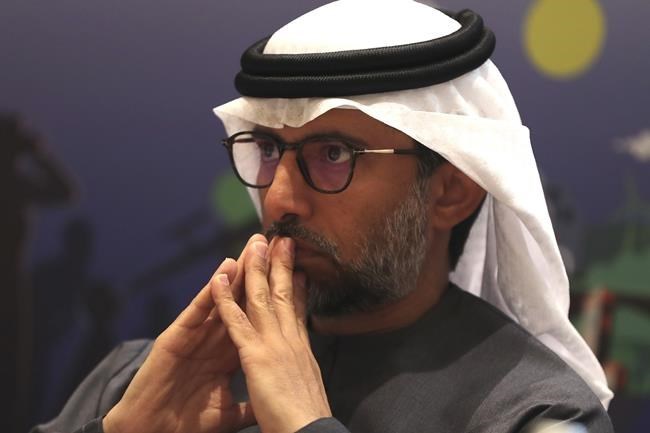DUBAI, United Arab Emirates — OPEC and allied nations agreed Sunday to raise the production limits imposed on five countries next year and boost their production by 2 million barrels per day by the end of this year, ending a dispute that roiled oil markets.
The disagreement, sparked by a demand by the United Arab Emirates to increase its own production, temporarily upended an earlier meeting of the cartel. In a statement Sunday, the cartel announced that Iraq, Kuwait, Russia, Saudi Arabia and the UAE would see their limits rise.
“What bonds us together is way much beyond what you may imagine,” Saudi Energy Minister Prince Abdulaziz bin Salman said. “We differ here and there but we bond.”
Prince Abdulaziz declined to elaborate on how they came to that consensus, saying it would see the cartel “lose our advantage of being mysterious and clever.” But he clearly bristled at earlier reports on the dispute between Saudi Arabia, long the heavyweight of the Vienna-based cartel, and the UAE.
Prince Abdulaziz deferred at the beginning of a news conference afterward to al-Mazrouei in a sign of respect.
“The UAE is committed to this group and will always work with it and within this group to do our best to achieve the market balance and help everyone,” al-Mazrouei said. He praised the deal as a “full agreement” among all the parties.
Outside of OPEC, however, tensions still remain between the
Abu Dhabi's powerful Crown Prince Mohammed bin Zayed, the country's de facto ruler, and Saudi Crown Prince Mohammed bin Salman have been close though over the years. The two leaders likely will meet Monday in Saudi Arabia.
Under the new production limits, the UAE would be able to produce up to 3.5 million barrels of crude oil a day beginning in May 2022. That's below the 3.8 million barrels a day it reportedly sought. Saudi Arabia's limit of 11 million barrels a day would rise to 11.5 million, as would Russia's. Iraq and Kuwait saw smaller increases.
In its statement, OPEC acknowledged oil prices continued to improve.
“Economic recovery continued in most parts of the world with the help of accelerating vaccination programs,” the cartel said.
Prince Abdulaziz also mentioned OPEC members Algeria and Nigeria had raised concerns about their production limits as well.
Oil prices collapsed amid the coronavirus pandemic as demand for jet fuel and gasoline dropped amid lockdowns across the globe, briefly seeing oil futures trade in the negatives. Demand since has rebounded as vaccines, while still distributed unequally across the globe, reach arms in major world economies.
Benchmark Brent crude oil traded around $73 a barrel Friday.
Once muscular enough to grind the U.S. to a halt with its 1970s oil embargo, OPEC needed non-members like Russia to push through a production cut in 2016 after prices crashed below $30 a barrel amid rising American production. That agreement in 2016 gave birth to the so-called OPEC+, which joined the cartel in cutting production to help stimulate prices.
OPEC+ agreed in 2020 to cut a record 10 million barrels of crude a day from the market to boost prices. It's slowly added some 4.2 million barrels back over time.
Beginning this August, the cartel said it separately will increase its production by 400,000 barrels a day each month through December — a total of 2 million barrels. The cartel then will assess plans on whether to phase out its current 5.8 million barrel of oil production cut by the end of 2022 as planned by the initial agreement.
OPEC member nations include Algeria, Angola, Congo, Equatorial Guinea, Gabon, Iran, Iraq, Kuwait, Libya, Nigeria, Saudi Arabia, the UAE and Venezuela. Members of the so-called OPEC+ include Azerbaijan, Bahrain, Brunei, Kazakhstan, Malaysia, Mexico, Oman, Russia, Sudan and South Sudan.
Prince Abdulaziz, in praising Sunday’s agreement, offered a cheery assessment of the future despite the recent turmoil, suggesting at one point the enlarged group might last beyond the expiration of the cuts next year.
“OPEC+ is here to stay,” the prince proclaimed.
___
Follow Jon Gambrell on Twitter at www.twitter.com/jongambrellAP.
Jon Gambrell, The Associated Press



